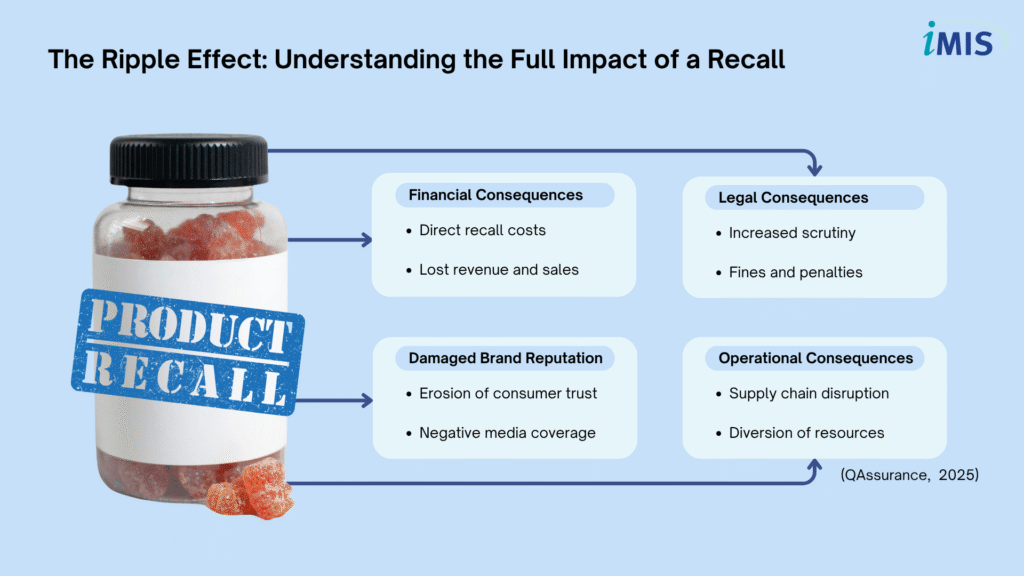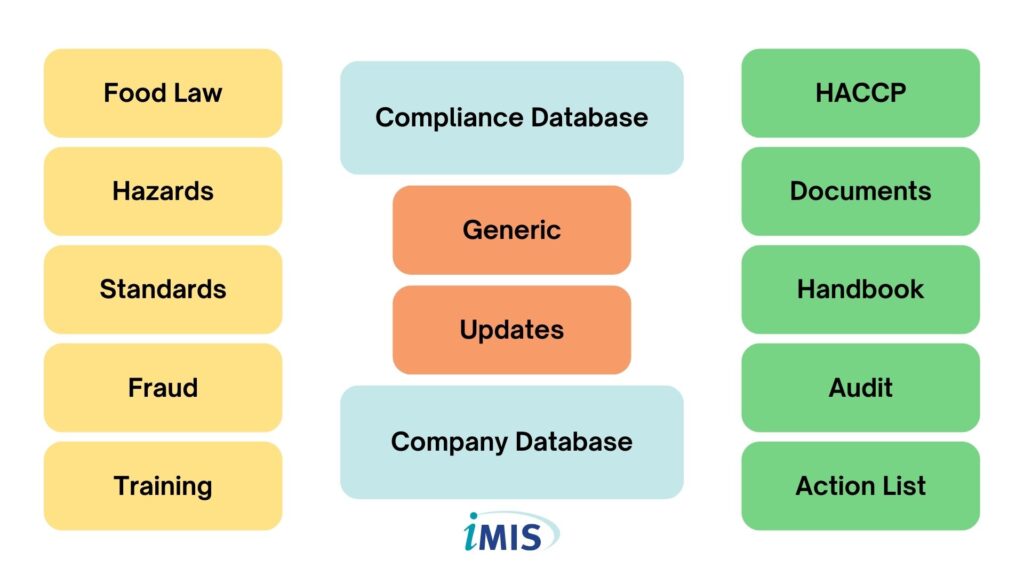Introduction
The Netherlands Food and Consumer Product Safety Authority (NVWA) is currently overseeing a serious recall of a popular HARIBO product due to cannabis contamination. The situation, which has caused severe illness in consumers, including young children, highlights the critical importance of food safety.
A new development shows HARIBO’s internal investigation found no irregularities in their manufacturing, concluding the contamination did not occur during their manufacturing process and shifting focus to external factors. This article covers the known details, the latest investigation updates, and the broader implications for food safety. Further official updates will be provided as they become available.
What Happened and What’s New in the Recall
The recall specifically concerns HARIBO Happy Cola F!ZZ in 1000 gram bags. Key details are:
- Product: HARIBO Happy Cola F!ZZ (1000 gram)
- Production Code: L341-4002307906
- Best-before Date (THT): January 2026
- Reason for Recall: Contamination with cannabis.
- Severity of Illness: Reports confirmed the gravity of the situation, revealing that two preschool-aged children in the Twente region were hospitalised after eating the sweets. One of the children tragically fell into a coma before recovering.
- Geographic Scope: The recall is focused on the Netherlands, with reports indicating the issue was localised to a specific product in the eastern part of the country.

UPDATE 07/06/2025: HARIBO has stated that its own independent investigation is complete.
A spokesperson confirmed that lab tests on stored samples from the affected batch, raw materials, and products from stores all came back negative. The company asserts the contamination did not occur during their manufacturing process and that no irregularities were found. The official investigation by the NVWA and police continues.
UPDATE 18/06/2025: No Cannabis Found in Official Forensic Tests
In a significant reversal, extensive testing by the Netherlands Forensic Institute (NFI) found no traces of cannabis or related substances in any of the Haribo sweets samples they investigated.
This official forensic result contradicts the initial rapid tests done by police, which had indicated the presence of cannabis and triggered the nationwide recall.Haribo’s Position Strengthened: This new finding aligns with Haribo’s own internal investigation, which had already concluded that no contamination occurred during their production process.
Potential Causes and Post-Production Scenarios
While the official investigation is ongoing, the source of the contamination remains unknown. Based on HARIBO’s statement clarifying its production process, the focus of the investigation will likely intensify on external factors. Potential causes now point towards events that may have occurred after the product left the factory, such as:
- Intentional Adulteration: The possibility of deliberate tampering or malicious contamination at some point in the supply chain, during distribution, or even at a retail level, is a primary concern.
- Counterfeit Products: The infiltration of counterfeit goods, packaged to look like authentic HARIBO products, could be a possibility.
- Compromised Packaging or Distribution: Issues could have arisen during transportation or storage if the product’s integrity was compromised.
The official investigation by the authorities will be crucial in determining the true origin of the contamination.
The Wide-Reaching Consequences of a Recall
When a product is recalled, the consequences extend far beyond the initial cost of pulling items from the shelf. The negative impact creates a ripple effect, touching every aspect of the company, from its finances to its very foundation of trust with the public.
Financially, the company faces direct recall expenses, lost revenue, and declining stock value. Brand reputation suffers from eroded consumer trust and negative media coverage, causing long-term damage. Operationally, the recall disrupts the supply chain and diverts essential resources to crisis management. Finally, legally, the company faces increased regulatory scrutiny, potential fines, and other penalties.

The importance of preventing a food recall
Preventing food recalls is paramount for several reasons:
- Consumer Safety: As this incident tragically demonstrates, contaminated food products can cause severe illness, long-term health effects, or worse.
- Brand Reputation and Trust: Recalls can severely damage a company’s image and erode consumer trust, which can take years to rebuild.
- Financial Costs: The direct and indirect costs of a recall are substantial, including logistics, product destruction, lost sales, and potential legal fees.
- Regulatory Compliance: Food safety regulations are strict, and non-compliance can result in fines and increased scrutiny.
Preventing Recalls and Staying Updated with iMIS Food
Proactive food safety management is key to preventing recalls. Systems like iMIS Food offer a comprehensive approach to help food companies maintain the highest safety and quality standards. iMIS Food Compliance can assist by:
- Implementing robust quality management systems (QMS).
- Ensuring thorough supplier verification and raw material control.
- Facilitating end-to-end traceability throughout the production and distribution chain.
- Providing up-to-date information on regulatory changes and food safety alerts.
- Supporting risk assessment and the implementation of preventative controls (HACCP).

By leveraging such compliance tools, food businesses can significantly reduce the risk of incidents that could lead to recalls, thereby protecting consumers and their brand. iMIS Food Compliance also serves as a valuable resource for staying informed about emerging food safety issues and regulatory updates.
Further Recall Updates
This is an ongoing situation. The official investigation by the NVWA and police continues. Consumers and industry stakeholders should monitor official announcements for the latest information.
Stay Connected: Join our Newsletter!
Ready to learn more? Subscribe to our newsletter for the latest updates, tips, and exclusive content delivered straight to your inbox!
Sources
- [1] Haribo says cannabis in cola gummies not linked to production process. (2025, June 7). NL Times. https://nltimes.nl/2025/06/07/haribo-says-cannabis-cola-gummies-linked-production-process
- [2] Haribo recalls Happy Cola F!ZZ sweets in Netherlands after cannabis contamination. (2025, June 4). New Food Magazine. https://www.newfoodmagazine.com/news/251880/haribo-recalls-happy-cola-fizz-sweets-netherlands-cannabis-contamination/
- [3] Geen cannabis gevonden in colasnoepjes van Haribo, meldt NFI [No cannabis found in Haribo cola sweets, reports NFI]. (2025, June 18). NOS. https://nos.nl/artikel/2571630-geen-cannabis-gevonden-in-colasnoepjes-van-haribo-meldt-nfi
- [4] Nederlandse Voedsel- en Warenautoriteit. (2025, May 29). Belangrijke gezondheidswaarschuwing HARIBO Happy Cola F!ZZ 1000 gram [Important health warning HARIBO Happy Cola F!ZZ 1000 gram]. https://www.nvwa.nl/documenten/waarschuwingen/2025/05/29/belangrijke-gezondheidswaarschuwing-haribo-happy-cola-fzz-1000-gram
Related articles to The HARIBO Recall by the NVWA: What to Know
Many customers and visitors to this page 'The HARIBO Recall by the NVWA: What to Know' also viewed the articles and manuals listed below:
